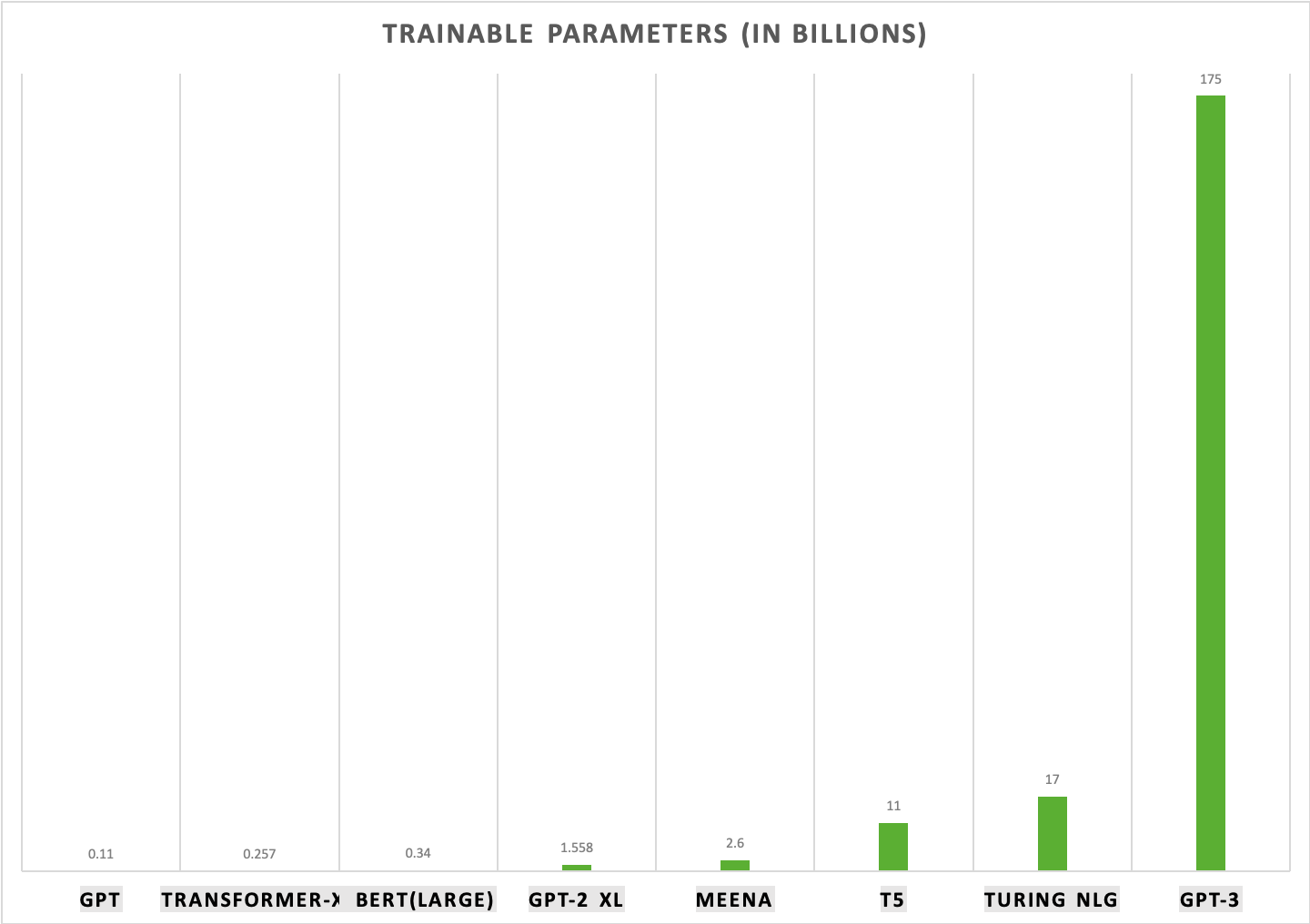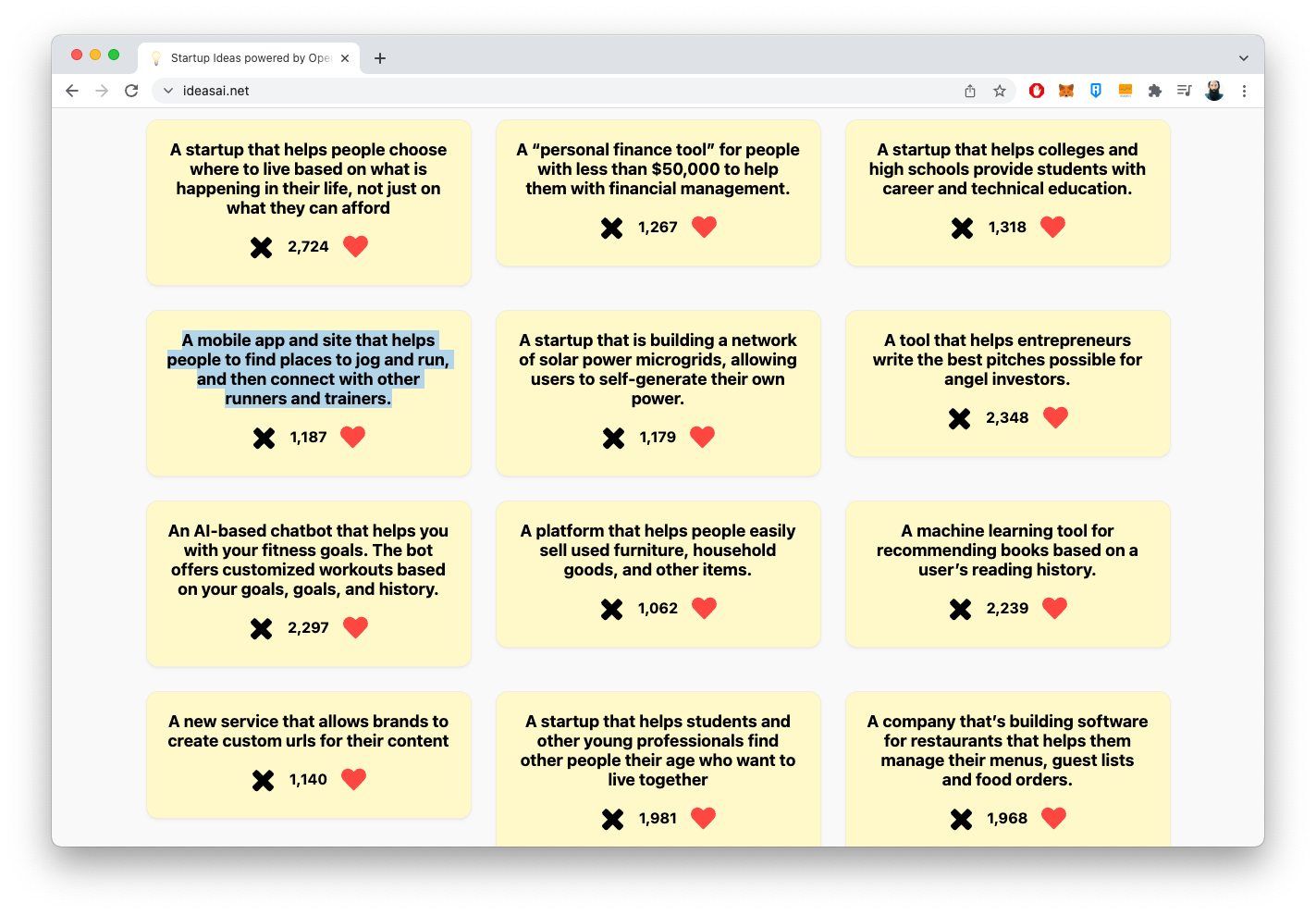Introduction
As a founder you’re always looking for the thing that's going to kill you next - it’s 2022, we’re coming out of the pandemic - while the world seemed to stop there for a couple of years there was one thing that did not, technology. Specifically, artificial intelligence (AI) - it has continued to learn, get better and improve to the point where the tools and applications are now applicable for day to day adoption.
I’m the founder of two agencies, rehab which creates brand utility products/ services in the web3 space, and ACE Workflow that builds custom workflows for companies using no-code tools like Airtable.
They are both very human capital intensive, and with good reasons to be - both of the companies are very high touch, providing bespoke consulting services. The business model is all about attracting the right talent, putting them in the right environment, with the right problem to solve to make the best work.
I’ve been really impressed with the new startups leveraging technology and AI to create creative applications and this is what I wanted to dive into a little more to see if these tools are a threat, or ally.
First of all, what is creativity?
What is the creative process?
The internet has given us the ability to roll out new ideas, campaigns, and thoughts at basically zero cost. Meaning there are an exponentially large (and growing) set of ideas all competing for our attention.
To win your attention the balance is shifting from outstanding creative ideas to ideas that outperform. I’m not saying that creativity isn’t important, but being able to track performance through various platforms allows us to understand what moves people through a funnel or to a destination quicker.
So how do you gain attention?
1- Have genuine breakthrough creative ideas
Creativity is a non exact science, it requires a highly skilled team and a super smart strategy creating the right brief with well researched insights - married to the right media to get reach.
While this is a fun process, it’s also expensive and time intensive; requiring a lot of things to be right along that process in order to create the type of work that captures breakthrough attention.
2 - Create a set of ideas at scale, track performance and iterate
Another way is to shift the balance of human resources to digital resources. Augment your creative thinking with the ability to use the right applications to allow for scalable production of ideas, while tracking performance.
To win using this method, brands only need to create communications that are “ok”, it’s not possible or required to create a large volume of ads required that are “perfect”.
This method allows you to win in modern digital marketing by creating lots of ideas, testing those ideas to figure out which ideas work best, then iterate on the successful ones. This can be a much faster, cheaper and more nimble way of working - it’s used by many digital first product brands like Google, LinkedIn, and Amazon.
Again the primary resource is creative talent, with albeit, a slightly different skill set with the addition of more insight, and data specialists.
It’s generally thought that AI tools cannot replace human creativity and innovation, but can we leverage AI tools to create creative output that comes close to the output of a team of skilled professionals?
Let’s find out.
How AI works, and an introduction to GPT-3
I’m not going to attempt to explain Artificial intelligence in this article but at a very high level there are a few fundamentals.
- Artificial Intelligence (AI) is the name given to technology that can mimic human behavior and can be used to solve problems for humans
- AI technology gets better over time by using a process called Machine Learning (ML), which takes previously used inputs and outputs so that they can improve the results
- There are many subfields of AI, including natural language processing which is understanding text language inputs/outputs used for auto-complete in gmail, computer vision which focuses on understanding images so your Tesla can drive by looking at the imagery comp
Yeah, that’s a gross oversimplification, but useful in explaining how AI tools work.
Creating AI applications is super complicated, time consuming, and expensive mainly because you need to have a bunch of smart people, a lot of time, and an unimaginably large set of data to feed the ML processes for it to learn.
Thankfully there are AI platforms that exist that allow developers to leverage the power of AI without having to have completed the majority of that upfront work.
One of the most used AI tool/ platform is called GPT-3 (from OpenAI), and is the market leader.
It’s a natural language processing AI platform that allows developers to send chunks of text via API and will receive a predicted text based best guess of what the answer should be.
Why is it so good?
- It’s very simple to access via API, and
- It’s predicted that GPT-3 has ingested over a third of the viewable internet, meaning it’s learnt from how people write text and information on the internet.

(I’m going to dive more into GPT-3 in the future, including discussing the negative effects around mirroring content, biases, plagiarism, and negative applications of this software, but for now let’s just assume that it’s all totally good and wholesome. 😅)
Ok, what’s my point?
So I’ve been deep diving into the AI space, to try to understand what additional tools are available, and wow. There are so many. IDK if they all decided to launch at the same time or for the past 2 years the pandemic has consumed my attention 😂
At ACE Workflow we design and build workflow solutions by connecting a bunch of SaaS products together, which got me thinking… Would it be possible to build a creative services agency that leverages only using these ai-based tools?
Can you create an AI powered creative agency?
Let’s imagine a (fictional) creative agency called Betterminds (Spoiler the name was also generated by AI). Betterminds leverages AI tools to rapidly concept and develop creative advertising campaigns for clients.
Let’s take a look at the AI tools that it could use in its workflow to deliver client work.
1) First you need an Idea
A fun application of GPT-3 that’s been around for a couple of years now - Ideas AI. This site automatically generates a new business idea 3-4 times per day. It then automatically tweets and posts it to the website. The quality of the ideas are improved over time by allowing users to upvote good ideas.
Is this inspiration for a new product or service that Betterminds could sell to one of its customers?
Let’s assume for moment the agency is working with Nike (if you have a moment check out Rehab’s work for Nike), here’s an idea generated by ideas AI
“A mobile app and site that helps people to find places to jog and run, and then connect with other runners and trainers.”

2) Then lets expand on the idea a little more, how might it work, what might it do?
Dirty secret: An AI app that I not only use daily, and to help me write these posts is an app called Jasper (previously Jarvis). Using GPT-3 to create content from text inputs. It’s surprisingly powerful and accurate. (Also according to my proofreaders either I’m getting better and writing or Jasper is…)
It has over 20 different models for specific writing tasks like blog posts, Amazon product listings, Meta tag information and customer reviews.
Here’s the text output that Jasper created:
“This app is for anyone who wants to get fit and stay healthy.
Whether you're a beginner or an experienced runner, our app and website will help you find running and jogging routes that are right for you.
We also have tips and advice from running experts, so you can improve your running skills and stay safe while you're out on the road. So what are you waiting for? Get out there and start running!”
3) Ok, now we need a website to promote the idea
There are plenty of website builders available, but one that is so promising (I’m also an advisor) is Enzyme. It’s using GPT-3 to interpret text input information to design, build, generate, copy and choose images for a webpage.
Enzyme is not launched yet, thank you to Teddy for allowing me to post this sneak preview and sign-up to the waitlist here.
Click here to view the site that Enzyme generated
4) Next we need some imagery
OpenAI are also creating other AI based applications, one that I can’t wait to play with is called DALL·E. An AI platform that creates Images from Text. While it’s not publicly released yet you can view the types of outputs that DALL·E is capable of producing.
From a content creation perspective, this is a game changer - the promise of the application is by simply typing in some text DALL·E will design and render genuinely unique images, here’s an example:

5) What about a voice over for a podcast advert?
Descript is an app that leverages AI to create voice overs. Simply paste the copy that you want to be converted into voice over and the app will generate the audio voiceover.
(You can even use this as part of a video production workflow, import your audio recordings from a shoot, that audio will be transcribed.)
Now all you need to do is edit the text in the same way you’d edit in a Google doc and the software will automatically trim and cut the audio files, exporting a premiere file. Super smart.
But back to this running app idea being created by Betterminds. I get it that things are getting a bit weird because I have a Santa voice loaded into Descript at the moment but you get the idea.
Whether or not it’s the best idea doesn’t matter, the point here is that these tools are taking the content of humanity and using it to create new materials at scale.
We could go on but I hope you see the potential and where this can go? After all I just created the following assets myself:
- An idea
- Description of the idea
- A website
- An audio advert / voiceover
It’s exciting, scary, fun and could be the next thing to try and kill us 🤷
The AI powered tool kit is expanding all the time
While some of the output may be a little elementary, the question is how good does it have to be to work?
Regardless, the quality of the output is going to improve with time, I can see applications for this eventually surpassing human ability at some undefined point in the future - I’m reminded about NASA coining the “survival of the fittest”, the strongest designs survive and the less capable do not.”
There are a lot of other apps that I didn’t include just because I ran out of time, but here’s a breakdown of some others that I think are interesting
- Copilot - An application that is essentially a "pair-programer", which provides suggestions for whole lines or entire functions right inside your editor based on code available from the public GitHub repository.
- Amper music - AI generated audio, simply tell it the length you need, the genre and it will generate unique audio for your project
- Runway ML - Using AI to instantly Green Screen, In-painting using AI to accelerate post-production workflows
I’d love to learn more about tools you’re using, perhaps I’ll put together a directory to track AI powered creative tools.
Thanks to Kyle for the ongoing proofreading services :)